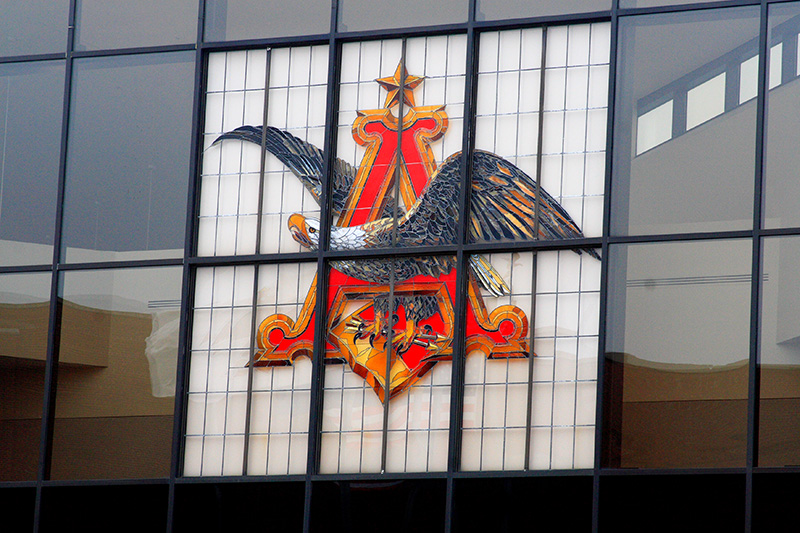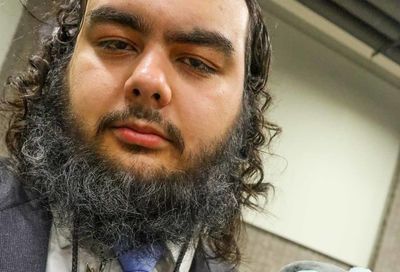A Dangerous Pope
Pope Francis is an even more harmful adversary to the LGBT community than his predecessor

This week, my college was a flurry of activity as everyone prepared themselves for Pope Francis’ arrival. At Georgetown, Francis is nearly universally beloved. He’s the first Pope from the Americas, the first Jesuit, and a priest who makes all the right noises about the entire portfolio of progressive causes.
Pope Francis wants us to know that he cares deeply about the poor, specifically using the language of income inequality to draw connections between living uprightly and secular economics. Francis talks about the environment and climate change, and calls on businesses and his laity to reduce their dependence on fossil fuels. He vehemently opposes the death penalty, has warm things to say about people of different faiths, and offers Jesuitical demurrals when the media attempts to goad him into offering anything concrete regarding the LGBT community.
I should adore this pope, if only for that final point. I’ve been enrolled in a parochial school every year since 1999 and, entering my senior year at Georgetown, I should be pleased with the change in tone this pope has brought. No longer is it acceptable for my teachers and pastors to offer unvarnished criticism of my lifestyle and choices. Instead, anything they choose to offer has to be framed in the context of offering me pastoral care and support. I honestly do feel that Pope Francis has made life far more comfortable for LGBT students in thousands of Catholic institutions across the United States.
Unfortunately, I’m not won over by victory by semantic revision, and I’m not overly impressed with Francis. I was perhaps immune to his charms because of my general conservative streak, but I fear that Francis may actually be worse for the gay community than his predecessor, Benedict XVI. I haven’t forgotten Benedict reminding us that we are all intrinsically disordered, or his decision to use a Christmas sermon to bash our brokenness and the deleterious effects that we have on the world. I would never argue that Benedict is a better or kinder person than Francis, but I think the response he elicited from the gay community, and from the world in general, was far more helpful.
Benedict XVI was not one to equivocate. He set forth battle lines for Christendom and maintained orthodoxy with an iron fist. If one didn’t like the direction of the church, one could choose to do battle. Gay Catholics could leave a church that would never welcome them, or organize into groups that could plan for a better future. A vocal dissent grew under Benedict and gay Catholics began to loudly demand better from their church. They dared to openly, vocally, and proudly ignore and condemn teachings that they knew to be wrong. Even straight Catholics were put off by Benedict’s rhetoric and able to see that the teachings of the church did not reflect their lived experiences. A church that viewed gay people as a danger akin to its own stable of pedophiles simply could not be taken seriously on issues of sexuality.
With Francis, I see that much of the motivation for this kind of bravery and disobedience has dissipated. Rather than fighting for equality, our community is rolling out the red carpet for a Pope who has changed literally none of the church’s teachings on sexuality. While Benedict’s ravings alienated straight audiences, Francis’ words provide a great deal of support to a rising tide of soft bigotry. It’s no longer okay to say hateful things about gays, but it’s completely acceptable to refuse them full equality. In some ways, this message perfectly aligns with a wider negative attitude emerging in society. Gays can have sex, they can marry, they can have kids, but they can never be “normal.” We will always be the other. Francis now tells us that the church should respect and care for the LGBT community, but it should never acknowledge our full humanity or our complete dignity. As an identity and as a people, we still don’t really exist. We will never be the embodiment of God’s image on earth.
Despite his many warm interactions with gay people, Francis has already shown clear disconnects with reality in his preparations for this trip. The Pope recently offered some truly disturbing thoughts on the role of transgender people in the church and, more recently, the Vatican raised a ruckus about a few LGBT activists buried amongst the thousands of Americans chosen to greet the Pope upon his arrival. An invited friend of mine, Mateo Williamson, was singled out for criticism for his activism on behalf of trans Catholics. One can only hope that these warning signs remind the gay community that Francis is Benedict’s theology wrapped in charisma and kindness.
We all knew that Benedict was a bastard, but we also knew how to deal with him. With Francis’ arrival in the U.S. this week, we should remember that, despite his warm words about us, he is a more dangerous adversary than his predecessor ever was.
Support Metro Weekly’s Journalism
These are challenging times for news organizations. And yet it’s crucial we stay active and provide vital resources and information to both our local readers and the world. So won’t you please take a moment and consider supporting Metro Weekly with a membership? For as little as $5 a month, you can help ensure Metro Weekly magazine and MetroWeekly.com remain free, viable resources as we provide the best, most diverse, culturally-resonant LGBTQ coverage in both the D.C. region and around the world. Memberships come with exclusive perks and discounts, your own personal digital delivery of each week’s magazine (and an archive), access to our Member's Lounge when it launches this fall, and exclusive members-only items like Metro Weekly Membership Mugs and Tote Bags! Check out all our membership levels here and please join us today!
























You must be logged in to post a comment.